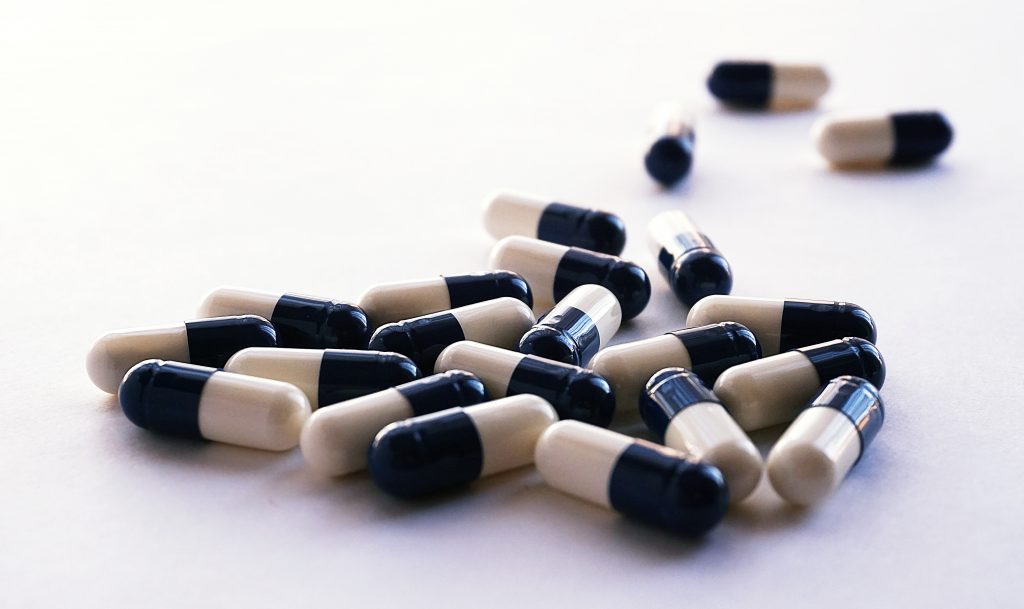The Surprising Ways Antibiotics May Have Unknowingly Harmed Your Health
Jocelyn learned her chronic arthritis was being caused by a persistent, simmering intestinal Prevotella overgrowth and resulting food sensitivities, which seemed to start after she took antibiotics for two weeks.
Frank thought he had a UTI, and while waiting for his labwork to come back, took a course of cipro “just in case.” Turns out he didn’t actually need the antibiotics. Plus, his IBS came back with a vengeance within the next month.
Neha took antibiotics for a week for her bronchitis that resulted from the flu, and noticed she developed anxiety afterwards that won’t go away.

Antibiotics
Antibiotic drugs are prescribed for bacterial infections (and sometimes parasites) for anything from a respiratory infection to an infected toenail to a urinary tract infection to a tooth abscess. They can be lifesaving when no other solution is available, however, there are potentially serious trade-offs. And the way we live has a large impact on how likely we are to ever need antibiotics.
The human gut is populated with hundreds of trillions of microbes – an estimated ten times as many human cells make up our bodies.
Anti-biotic means anti-life, and these drugs are effective at decimating this microbial population. Unfortunately, the drug wipes out the beneficial bacteria as well as potentially harmful ones.
It can take a long time for our microbiome to grow back, and it likely never fully grows back to its former state.Repeated use of antibiotics can be particularly dangerous, but even a single course can have permanent implications. It’s also important to remember that antibiotics only generally work against bacteria – and to varying degrees against specific strains. Microbes are always competing for space and resources in our gut, and a strongly diverse bacterial population actually helps to prevent infections and imbalances.
Unfortunately, by wiping out their competition, antibiotics give both fungal/yeast microbes and antibiotic-resistant microbes a chance to surge and become more virulent. This is a major cause of downstream dysfunction.

The Gut: Primary Home of the Immune System
Over 66% of our immune system resides in our gut, making the health of the intestinal microbial population critical. Immune cells are the source of inflammation (or not) in the body, and they take much of their cue about the status of our world by surveilling our present, microbial population in the digestive tract. Research over the past 15-20 years in particular has strongly reinforced the old adage that “disease begins in the gut.” Our gut microbes affect our weight and metabolism, our mood, our vulnerability to allergies and asthma, our hormone balance, and our risk of autoimmune disease, just to name a few. They are our symbiotic partners in creating wellness in our bodies. And antibiotics seriously damage our teammates.
I have seen cases of IBS, asthma, allergy onset, mood imbalance, eczema, acid reflux, arthritis, insomnia, chronic congestion all begin downstream from a course of antibiotics. Sometimes a few days later, sometimes a few months later.
Excessive or inappropriate antibiotic use can have dramatic downstream consequences for us as individuals but also as a population overall. Having higher microbial diversity in our guts helps our immune systems to better know who is friend and who is foe – and thus appropriately target and proactively prevent pathogenic microbes from moving in and setting up shop.
We also may be passing on more limited microbiomes to future generations and changing our vulnerability to pathogens as a species.

Supporting Our Immune Systems to Counter Illness
There are certainly times when antibiotics are absolutely necessary and lifesaving. But too often we end up taking one because we were unwilling to make the lifestyle choices that help our immune system to be strong and counter bacterial threats on its own.
Our immune system is constantly addressing bacterial threats “behind the scenes” without our knowledge. When we “feel sick,” it’s actually not an infectious microbe directly causing those symptoms. What we feel is the immune system going into higher gear, and these symptoms are evidence of its activity (e.g. fever, congestion, fatigue).
What the body most needs us to do then is to hear its call for help and change our behaviors. Rest. Hydrate. Sleep extra. Avoid stress. Stop being a hero.
And consider staying home from work for a few days. Too often, we want to “push through” those initial symptoms that are telling us we might be “coming down with something,” and then we reap the consequences.
These are simple foundational suggestions, but also powerful choices. And choices we can struggle to make on a daily basis!

To help keep a strong immune system, I recommend the following:
- Keep your Vitamin D nice and high throughout the year, ideally around 40-60 ng/ml. Get safe sunshine, have your doctor test your levels, and use supplemental magnesium, D, and K2 where appropriate.
- Ask your doctor to check your zinc levels, specifically with an RBC zinc marker (not serum – and you might have to be insistent to get it). You want to be in the upper third of the reference range for this marker, not barely in it. Zinc is critical for strong immune function.
- Sleep. Seriously. Like it’s your business. Sleep should not be one of those things we finally give in to late at night when we can no longer function. Sleep is when the immune system restores itself and healing occurs. Even just getting less sleep for several days in a row increases your chance of “getting sick.”
- Notice stress as an early warning sign. As soon as we experience persistent stress for more than a day or two, the immune system will purposefully suppress itself as part of our adapted survival response. The body assumes that if we’re “running for our lives” we cannot afford to get sick or we might not survive. So when we live with ongoing stress, our immune system is weaker. (Remember getting sick right after college finals, without fail?)
>>Develop some mindfulness habits to reduce and manage stress. Stress is not about what’s happening around us; it’s about the response we choose to have to those circumstances. We can always change our choices. Simple daily activities like meditation, gratitude journaling, long walks in nature, prayer – these can all help to reset our perspective and enable us to not choose stress. After all, ongoing stress may be the #1 reasonwhy people get sick. - Respond early on to brewing infectionswith natural solutions, such as D-mannose and concentrated cranberry for urinary tract infections, before requesting a prescription.
- Eat real foods, lots of colorful fruits and veggies, fish, poultry, and lean meats, and eggs, and minimize sugar. And don’t forget to feed your microbiome! It loves pre-biotic foods like Jerusalem artichokes, jicama, dandelion greens (straight from your garden is great!), less ripe bananas, cooked & cooled lentils and potatoes, chicory, beets, seaweed, garlic and onions, asparagus, apples, and flax and chia seeds.
- Keep the gut-based immune system calm and balanced by taking a daily probiotic or enjoying lacto-fermented foods on a daily basis (natural sauerkraut, pickles, kimchi – no vinegar, only salt brine; plain yogurt, kombucha, kefir, etc.) . If you’re so inclined, you can easily make fermented veggies at home easily and cheaply!

Taking Antibiotics
If you do have to take a course of antibiotics, don’t look at it as a failure. Just remember that it’s critical to take a strong probiotic twice daily while doing so and then for a month afterward, even if you’re eating cultured foods regularly. This probiotic should include a strain called Saccharomyces boulardi (S. boulardi). The key here is to keep the immune system calm during the course but also to aggressively protect against undesired surges in other microbes.
-with text contributions by Tracy Harrison, SAFM. Thank you, Tracy!
